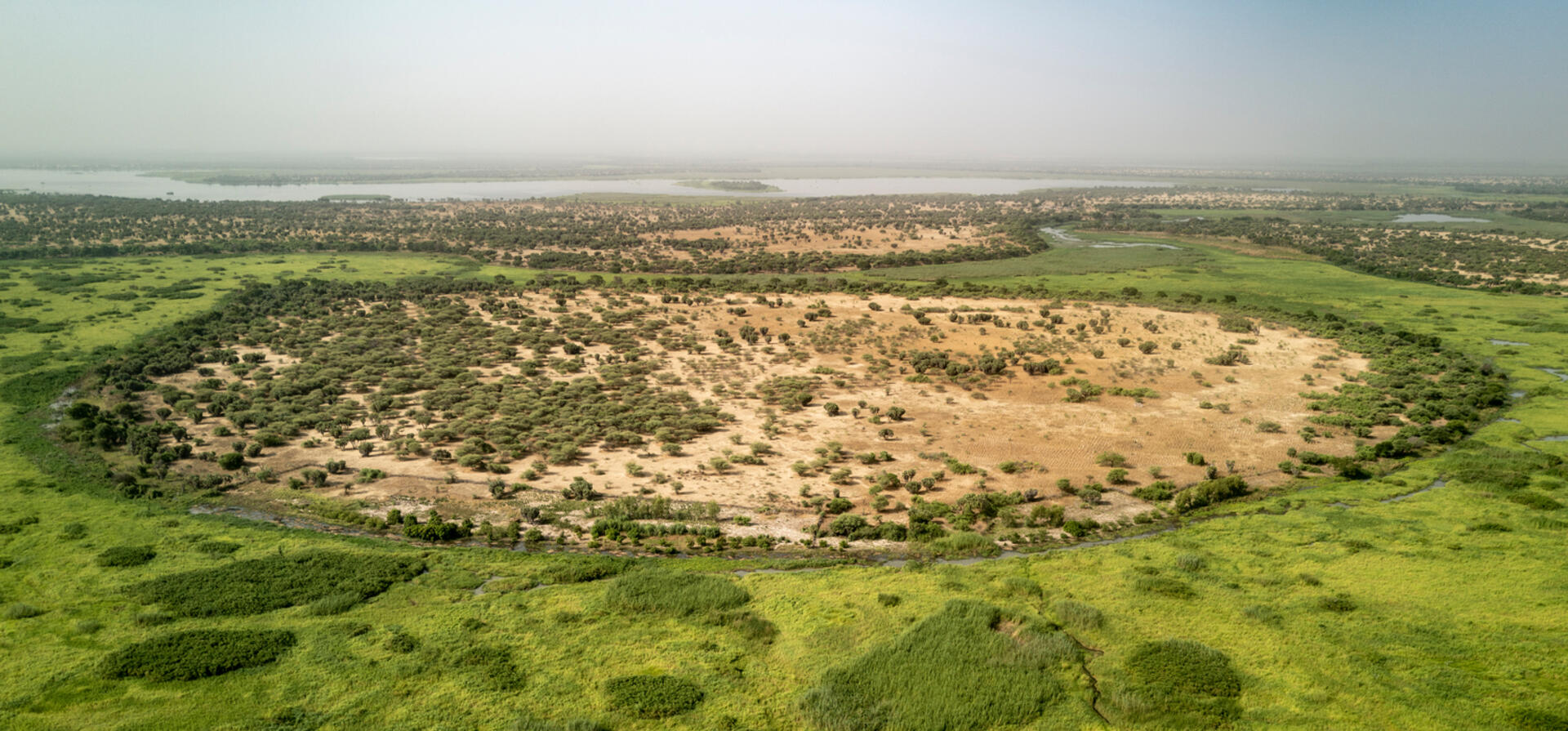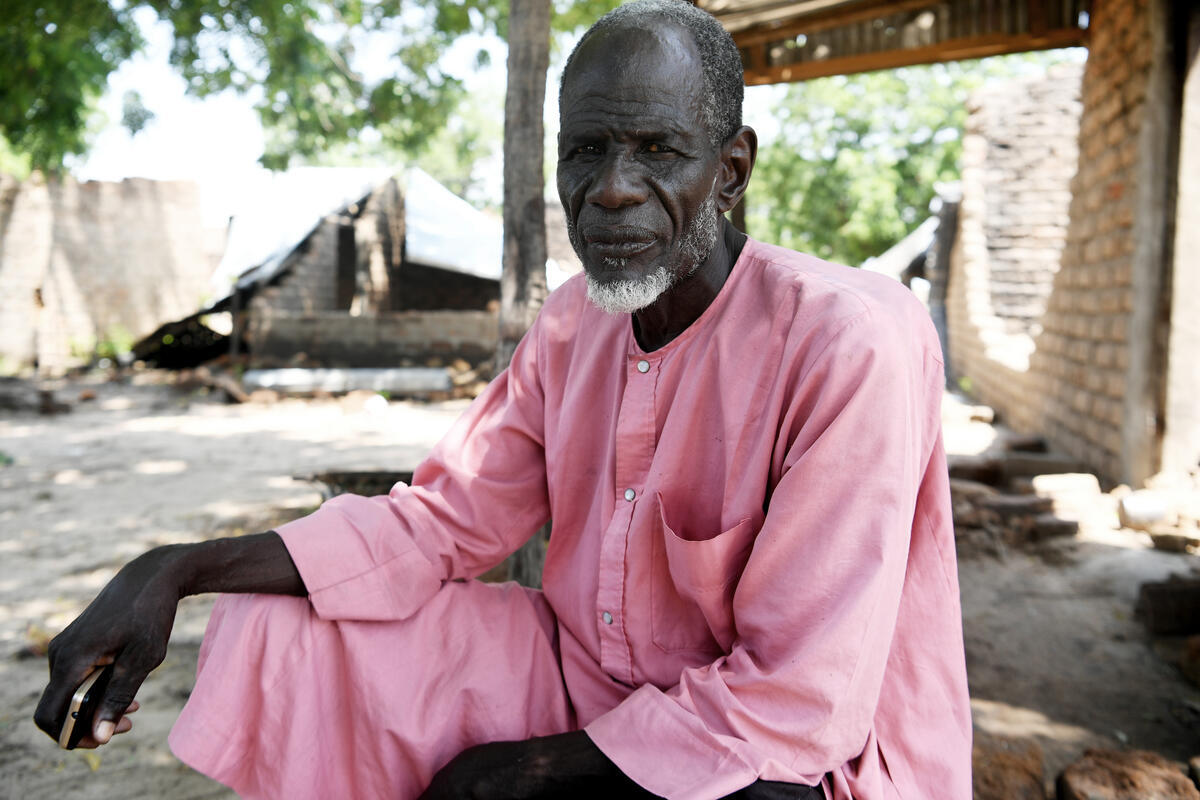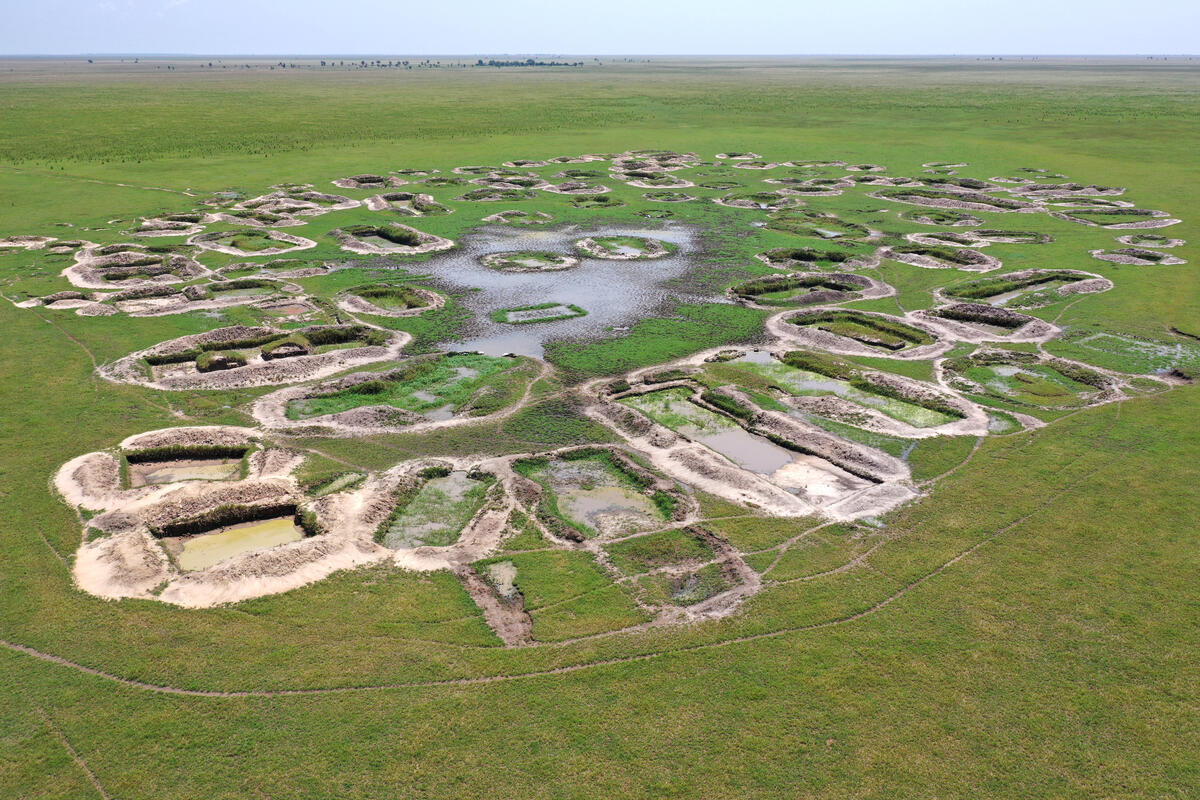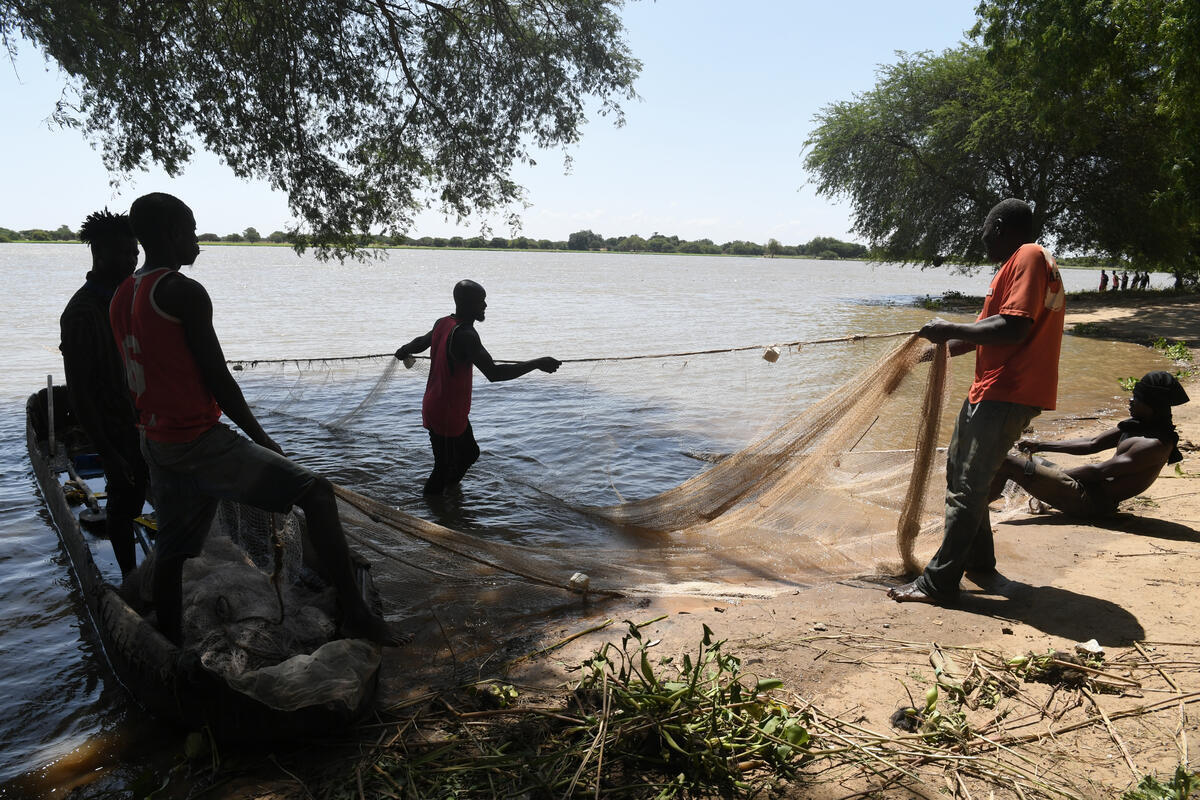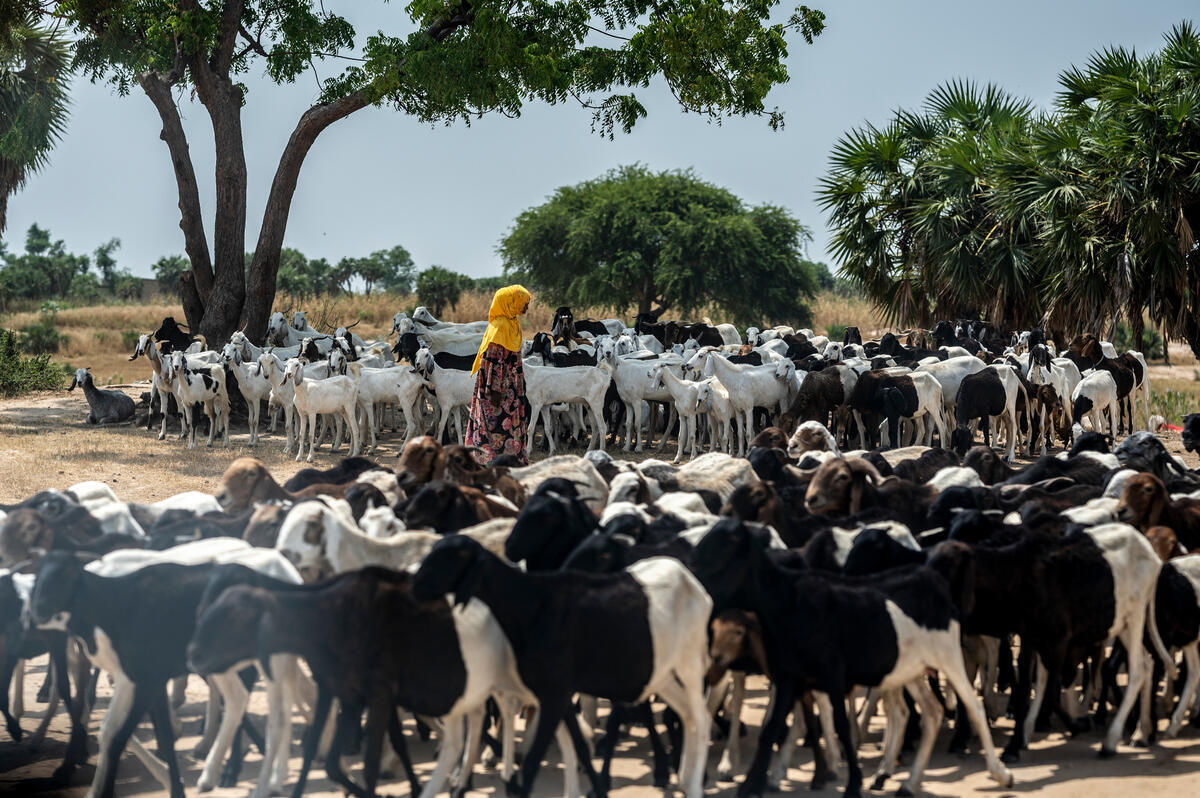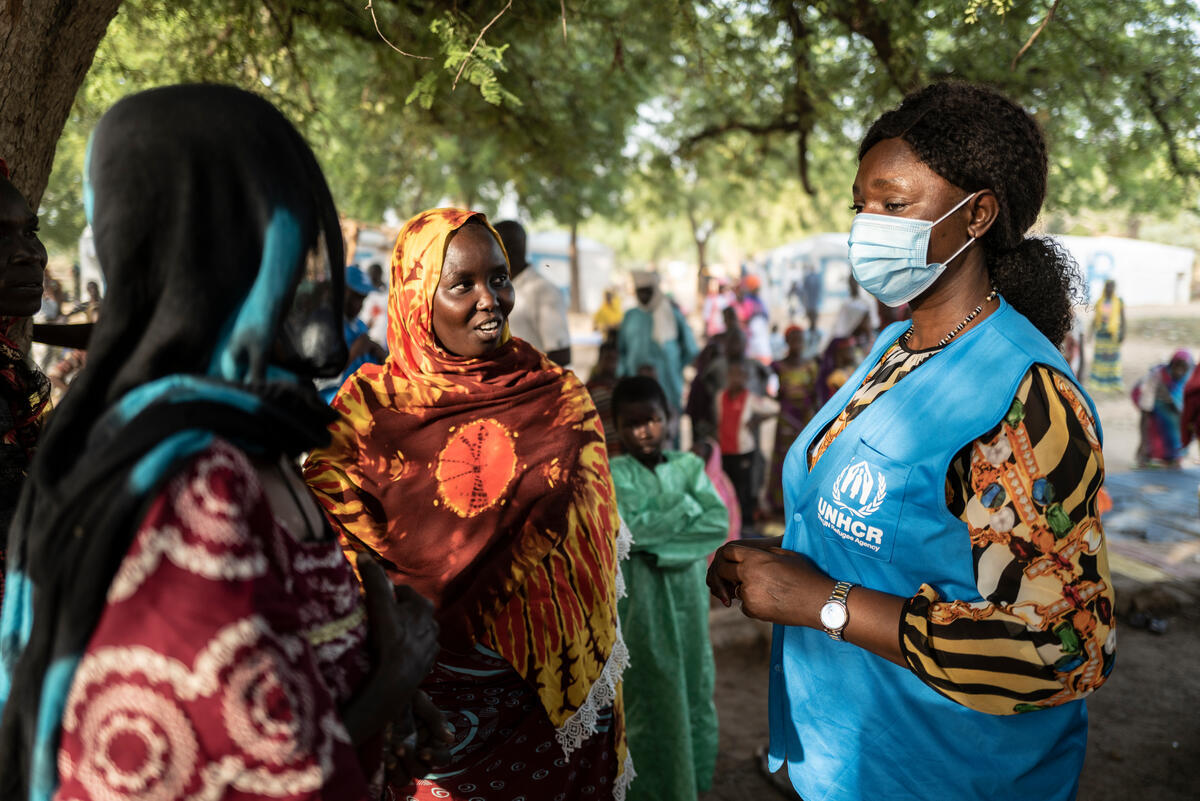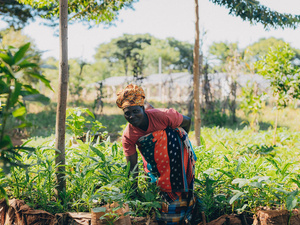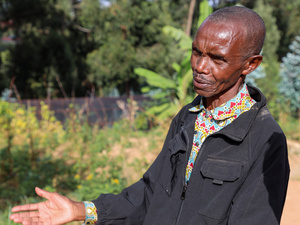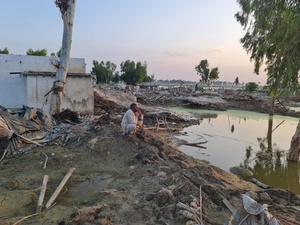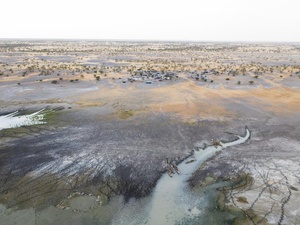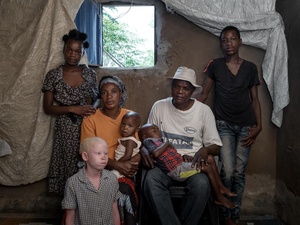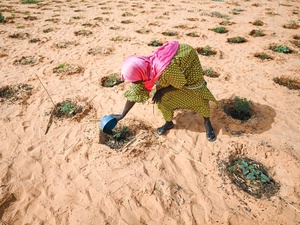Dwindling rains in northern Cameroon spark conflict and displacement
More than 7,000 kilometres away from Glasgow, where world leaders are gathered to tackle the climate crisis, Robert Mati, 62, is still reeling from a climate-related conflict in his village in the Far North region of Cameroon two months ago.
Walking unsteadily through the ruins of his burned house, Mati, mutters: "They got us, they got us.”
"They" are the Choa Arab herders. Their relations with the Musgum fishermen and farmers, the ethnic group to which Robert belongs, have deteriorated as rains have diminished on the Logone-Birni floodplain, drying up the rivers and seasonal ponds both communities rely on for their livelihoods.
The Musgum have responded by digging vast basins to retain water – and fish – in the dry season. But these deep reservoirs so necessary to the Musgum, create death traps for cattle belonging to the Choa Arab herders. The animals slide down the steep slopes, break their legs and sometimes drown.
It was one of these drownings that triggered the attack on Missika, Robert's village, on 10 August. “Choa herders came to fill the holes we had dug,” he says. “In fact, they wanted us to fill the holes ourselves the very same day. If we didn’t do it, we were dead, they said.”
The ensuing clashes between herders and fishermen left 45 dead and 74 injured. Nineteen villages were burnt down and more than 23,500 people were forced to flee.
Initially, 13,000 people fled across the Logone river to Chad. Two months later, 4,000 have returned while close to 9,000 have remained in Chad. In collaboration with other UN agencies, NGO partners and Chadian authorities, the UN Refugee Agency, UNHCR, is providing them with shelter, health care and other basic necessities.
"I don't want to return until real peace is restored."
Assiam Yere, a 55-year-old Musgum refugee in Chad says she saw nine young men from her community killed in front of her eyes. “I am traumatized and I don’t want to return until real peace is restored,” she says.
For now, a precarious calm prevails in Cameroon’s Far North. Cameroonian authorities have organized several meetings between the leaders of the two communities, who signed an informal peace agreement on 14 August. All of the 12,500 people who fled the August clashes and stayed within the country have since returned home, even if many of them still fear a resurgence of violence.
“Currently, everyone is afraid. At night when you are in bed, there is no sleep,” says Issa Mahmat, a 45-year-old Arab Choa villager who returned home a few weeks ago.
His village, located a few kilometers away from Missika, was also partly destroyed. He does not want to hold a grudge against his neighbours, but recognizes that the root cause of the problem has not gone away.
“Finding water has become very difficult. We have to dig and use motor pumps to draw it from under the flood plain,” he explains.
The Sahel region has been hit hard by climate change. Temperatures are rising 1.5 times faster than the global average and the UN estimates that 80 per cent of farmland is degraded.
“I don't know the cause of climate change, but we have to adapt to retain fish during the dry season,” explains Assiam Yere, the Musgum refugee. “The yield from our crops is really not sufficient.”
On top of her security concerns, the poor yield from her land is another reason why she is postponing her return home. Most of the refugees share her fears that they will go hungry if they return, particularly as their crops have been neglected since they fled.
Here, climate change is both the root cause of displacement and a key factor preventing people from returning.
"There used to be plenty of water ... but not anymore."
“There is nothing green this year,” says Aboukar Mahamat, the coordinator of a Cameroonian NGO, Alliance for the Development of Environmental Education. “There are dozens of villages in Logone-Birni where people haven’t harvested anything, whether it is rice, maize or millet.”
He adds that large groups of herders who normally remain in the Lake Chad Basin have arrived in the Logone floodplain this year.
“This year and in the years to come, we can expect tension around water bodies and floodplains as everyone converges there,” he predicts.
"The tragedy in Logone-Birni illustrates what could become a reality on a much larger scale in the coming decades if nothing is done to stem the tide," says Olivier Beer, UNHCR's Representative in Cameroon. “The influence of climate on conflicts should be analyzed and measures agreed with development actors operating in the region.”
UNHCR will soon hold two peace forums which will bring together members of the Musgum and Choa communities and the authorities to promote peaceful coexistence.
But for now, there is no workable plan to return water to the Logone-Birni area.
"There used to be plenty of water, water for everyone, but not anymore," says Ousman Mazoumai, the chief of Missiska village. "Only God knows why."
Additional reporting by Moise Amedje Peledai and Helen Ngoh Ada in Cameroon and Sylvain Cherkaoui in Chad.


